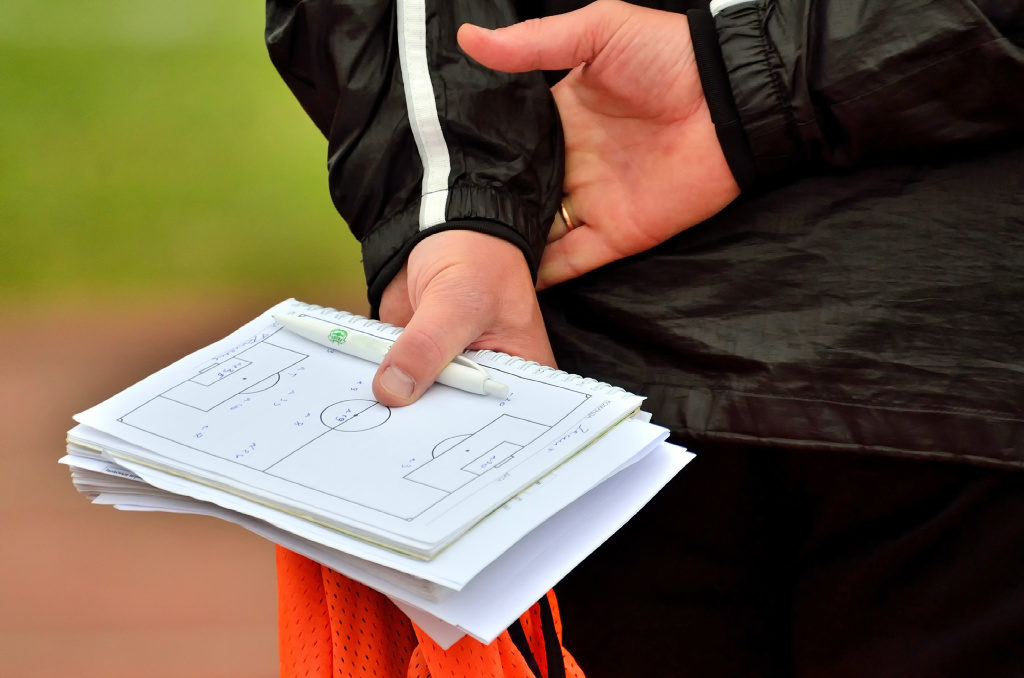What Your Athlete’s Coach Really Thinks Of You
By Tom Hoffman
I coach your child. And it’s time you know what I really think about you. I’ve gauged your athlete’s efforts at practice. I’ve seen their skills and how they perform in the games. I’ve drawn a conclusion:
You’re a terrible parent.
Every time Riley strikes out, Alex gets beat off the dribble, Sam misses a wide-open shot, or Dylan doesn’t give 100%, I have determined you’re a failure.
And it’s not just me who feels this way. It’s all of the other parents standing on the sideline right next to you–the human stress balls relieved it was your kid who messed up and not theirs. Yep, you now wear the scarlet letter of your child’s error.
Ridiculous, you say? Of course, it is. But why then do you feel your entire body heating up as you sit there uncomfortably squirming in your seat, trying not to lose it, just because your CHILD made a mistake?
Then you sidle up to me after the game. It’s always some excuse-laden proclamation insisting little Charlie has made that play before or knows better than to let that mistake happen. Admit it, you’ve uttered some version of: “I taught him this…” or “She’s worked on that…” in an attempt to absolve yourself from the responsibility for your child’s mistake.
Ironically, up until that moment, you know what we were really thinking of you? Nothing. You never enter our minds. That is, until you bring it upon yourself to relive something nobody else has thought twice about since it happened.
Yet it’s entirely human. Or at least parental.
Why coaches are quitting youth sports
We’re all striving to be good parents, and it’s natural to seek the sort of validation that tells us we’re on that road. We want others to think we are doing a good job. However, when it enters the sports arena, this takes on a new dimension.
After all, if we’re trying to raise a competitor, it’s easy to connect the dots that we, ourselves, are competitive. This produces the toxic blend of fostering the creation of an athlete to whom we’re instilling the virtues of grit, determination, moxie, skill, and toughness, with, if we’re being honest, the desire that little Johnny is the envy of the other parents. (I mean, this is the Facebook mindset, is it not?) So the moment our athlete fails to live up to our lofty expectations and proves to be human, neigh, a human CHILD, we react poorly.
How often do you hear the sports parent’s version of self-effacing humor–though instead of making the joke at our own expense before anyone else has the chance, we’re making our derisive comments at the expense of our child as if someone was going to beat us to the punch. Let that stew for a minute. Instead of protecting or supporting our children in their lowest moments, we’re denigrating them. Whether they hear it or not. And if you actually have put forth the effort to teach them as you say you have, then your child is very aware of their error, and in that instance, they are in need of comfort, not a reminder of what they did wrong through a scolding or self-absolving comment on the sidelines.
What’s the solution? It’s rather simple. The same advice you’ve repeatedly offered your athlete, adopt for yourself: “Shake it off” or “Turn the page” so as not to compound the first mistake with another. How many times have we heard professional athletes offer the cliched, but no less valuable, axiom about having a short-term memory so they can mentally prepare for the next game or next play? We know this intuitively. It’s just in the moment we lose ourselves to the heightened emotions of watching our children play. However, now is the time for us to act like adults and deal with the discomfort of our kids’ failings by doing what we’ve been preaching: suck it up, rub some dirt in the wound of their mistake, give them a hug, and tell them you love them.
Tom Hoffman is a Certified Speed and Agility Coach (CSAC, NSPT) and the CEO and Program Director of “/athlete,” a company dedicated to working with young athletes in sports-specific speed and agility training in the Los Angeles area. Tom is both a coach/athlete and a marathoner/athlete. You can learn more at slashathlete.com.
